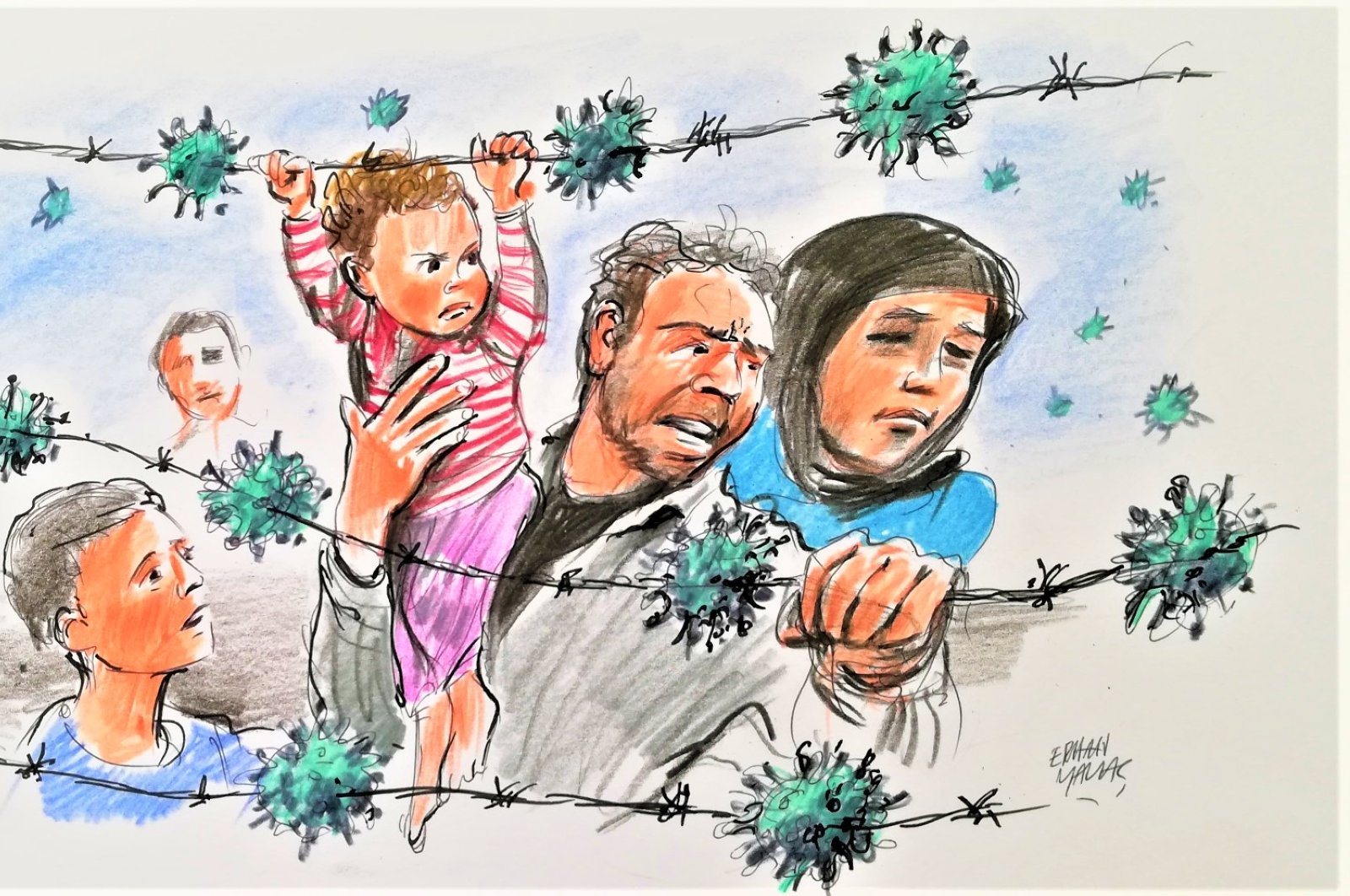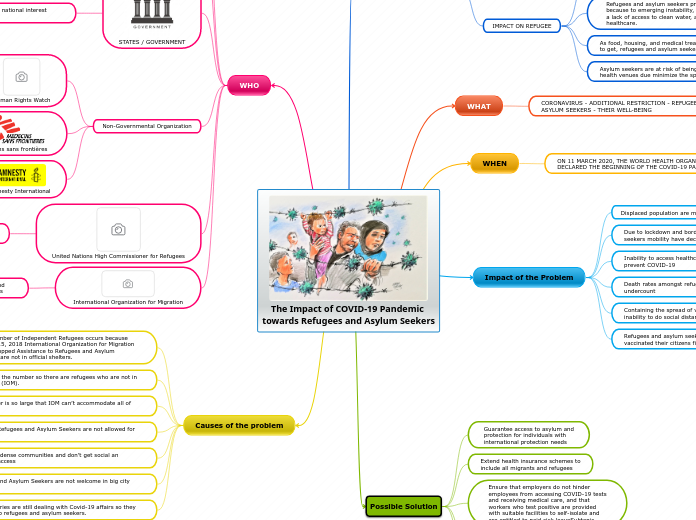
The Impact of COVID-19 Pandemic towards Refugees and Asylum Seekers
HOW
COVID-19
Coronaviruses (CoV) are a big viral family that causes illnesses ranging from the common cold to more serious disorders.
Chinese officials identified a new coronavirus as the culprit on January 7, 2020, and called it “2019-nCoV” for the time being.
The WHO European Region has become the epicenter of the pandemic by mid-March 2020
IMPACT ON REFUGEE
COVID-19 has increased the insecurity and vulnerability of refugees and asylum seekers.
Refugees and asylum seekers prone to getting COVID-19 because to emerging instability, overcrowded living situations, a lack of access to clean water, and a lack of access to healthcare.
As food, housing, and medical treatment become more difficult to get, refugees and asylum seekers suffer firsthand.
Asylum seekers are at risk of being excluded from public health venues due minimize the spread of COVID-19.
WHAT
CORONAVIRUS - ADDITIONAL RESTRICTION - REFUGEES AND ASYLUM SEEKERS - THEIR WELL-BEING
WHEN
ON 11 MARCH 2020, THE WORLD HEALTH ORGANIZATION DECLARED THE BEGINNING OF THE COVID-19 PANDEMIC.
Impact of the Problem
Displaced population are more vulnerable to the pandemic
Due to lockdown and border closures, refugees and asylum seekers mobility have decreased greatly
Inability to access healthcare, hygiene and sanitation to prevent COVID-19
Death rates amongst refugees and asylum seekers are undercount
Containing the spread of virus is almost impossible due to inability to do social distancing and lack of hygiene
Refugees and asylum seekers are left out as countries would vaccinated their citizens first
Possible Solution
Guarantee access to asylum and
protection for individuals with
international protection needs
Extend health insurance schemes to
include all migrants and refugees
Ensure that employers do not hinder
employees from accessing COVID-19 tests
and receiving medical care, and that
workers who test positive are provided
with suitable facilities to self-isolate and
are entitled to paid sick leaveSubtopic
Raise awareness among migrants and
refugees on the importance of seeking
health care, regardless of their administrative situation
Ensure that national and local COVID-19
preparedness and response strategies
and plans include migrants and refugees
WHO

REFUGEES
People who flee from war or persecution in their home country and seek refugee to other countries

ASYLYUM SEEKERS
People who has left their country and is seeking protection from persecution and serious human rights violations in another country

STATES / GOVERNMENT
Governments prioritze their citizens and national interest above it's humanitarian responsibilities
Non-Governmental Organization

Human Rights Watch
Advocates Human Rights and Pressuring Governemnt to Act

Médecins sans frontières
Providing Humanitarian Aid
Amnesty International
Informing Public and Pressuring Governments to Act

United Nations High Commissioner for Refugees
Providing safety, protection, and asisitance to refugees, asylum seekers, and IDPs

International Organization for Migration
Intergovernmental Organization that provides services and advice concerning migration to governments and migrants
Causes of the problem
The large number of Independent Refugees occurs because since March 15, 2018 International Organization for Migration (IOM) has stopped Assistance to Refugees and Asylum Seekers who are not in official shelters.
Because of the number so there are refugees who are not in the shelter (IOM).
The number is so large that IOM can’t accommodate all of them.
Status as Refugees and Asylum Seekers are not allowed for find work.
The live in dense communities and don’t get social an economic access
To get access the requirements are Indentify Card
Refugees and Asylum Seekers are not welcome in big city society.
Most countries are still dealing with Covid-19 affairs so they cannot help refugees and asylum seekers.
